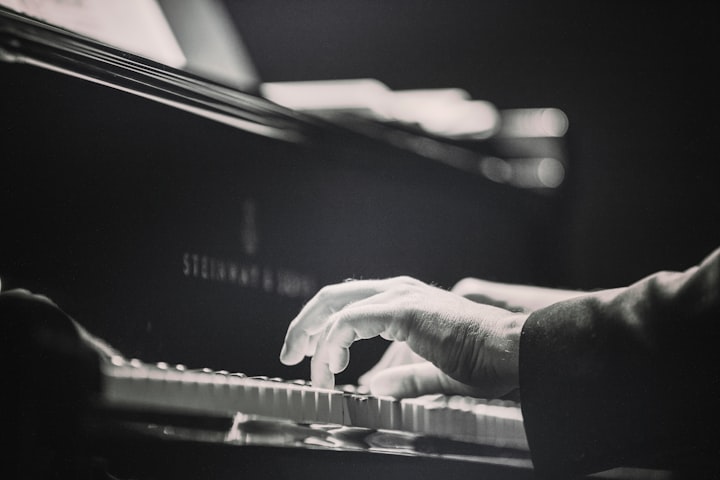How Hard is it to Learn Piano as an Adult? - A Realistic Look from a Pro Pianist
Is it hard to learn piano as an adult? Get a realistic look at the challenges, time commitment, benefits, and tips for success for adult beginners.

Juggling a career, family, and that ever-growing to-do list, you might wonder if adding "learn piano" to your plate is just one more recipe for a mid-life crisis. After all, aren't those nimble fingers and sponge-like brains best left to the younger generation?
As a professional pianist who didn't start tickling the ivories until adulthood, I'm here to tell you: it's absolutely possible to learn piano at any age. But let's be real, it's not always going to be a cakewalk. It requires dedication, patience, and a healthy dose of self-compassion.
In this article, we'll dive deep into the realities of learning piano as an adult. We'll explore the challenges you might face, the unique advantages you bring to the table, and the undeniable rewards that await those who persevere. Whether you're dreaming of serenading your loved ones or simply yearning for a creative outlet, read on to discover if embarking on this journey is right for you.
The Adult Brain: Friend or Foe in Piano Learning?
Let's address the elephant in the room: that nagging voice whispering, "It's too late. You're too old to learn piano." Well, I'm here to tell you that voice is flat-out wrong. While it's true that children's brains are particularly adept at soaking up new information, the adult brain is far from a musical dead-end.
Neuroplasticity, the brain's ability to reorganize itself by forming new neural connections, is a lifelong process. So, while you might not learn as quickly as a five-year-old prodigy, your adult brain is perfectly capable of mastering complex skills like piano playing. In fact, studies have shown that learning music can even improve cognitive function and memory in older adults.
Moreover, adult learners bring some unique advantages to the table:
- Focus and Discipline: Let's face it, kids can be easily distracted. As an adult, you have the focus and discipline to set goals, create a practice schedule, and stick to it.
- Motivation and Goal-Setting: You're not learning piano because your parents told you to. You're doing it for yourself, which means you have intrinsic motivation and a clear sense of purpose.
- Life Experience: Your life experiences, both musical and otherwise, can inform your piano playing and add depth to your interpretations.
So, while your brain might not be as malleable as it was in childhood, it's still a powerful tool for learning. With dedication, perseverance, and the right approach, you can absolutely achieve your musical goals, no matter your age.
The Challenges
While the adult brain is certainly capable of learning new tricks, let's not sugarcoat it: embarking on a piano-playing journey as a grown-up comes with its own unique set of challenges.
The Time Warp
Remember those carefree days when you had hours to burn practicing scales? Yeah, those are probably long gone. Between work, family, and other commitments, finding consistent practice time can feel like a Herculean task. And let's be honest, binge-watching the latest Netflix series is often more tempting than tackling Chopin Etudes.
Stiff Fingers and Rusty Joints
Kids' fingers are like little rubber bands, effortlessly gliding across the keys. As we age, our joints can become less flexible, and our muscles might need some coaxing to achieve those lightning-fast runs and trills. Plus, if you have any previous injuries or conditions, like arthritis, they might pose additional challenges.
The Mental Hurdles
Adult learners often bring a whole lot of baggage to the piano bench: fear of failure, self-doubt, impatience, and that pesky inner critic who's always ready to point out every missed note. It's easy to get discouraged when progress feels slow or compare yourself to child prodigies who seem to effortlessly absorb musical knowledge.
The Comparison Trap
Speaking of child prodigies, it's crucial to remember that they're the exception, not the rule. Comparing yourself to someone who started playing at age five is like comparing apples and oranges. Focus on your own progress, celebrate your achievements, and remember that learning piano is a marathon, not a sprint.
These challenges might seem daunting, but don't despair. With the right mindset and approach, you can overcome these obstacles and experience the joy of making music, regardless of your age or starting point. So, let's dive into the next section and explore the sweet rewards that await those who persevere.
The Rewards
Sure, the challenges are real, but let's not forget why you're drawn to those 88 keys in the first place. Learning piano as an adult offers a symphony of rewards that resonate far beyond the concert hall.
Stress-Busting Sonata
In today's fast-paced world, finding moments of calm is crucial. Piano practice can be a meditative escape, allowing you to focus your mind and lose yourself in the music. Studies have even shown that playing an instrument can lower cortisol levels (the stress hormone), offering a natural antidote to the anxieties of daily life.
Cognitive Crescendo
Learning piano isn't just about music; it's a full-brain workout. It challenges your memory, improves coordination, enhances problem-solving skills, and boosts focus and concentration. Think of it as a mental gym session that leaves you feeling sharp and energized.
The Sweet Sound of Achievement
Conquering a difficult passage or finally nailing that tricky arpeggio? It's a feeling of accomplishment that's hard to beat. Reaching musical milestones, no matter how small, can boost your confidence and self-esteem, reminding you that you're capable of achieving anything you set your mind to.
Social Connections and Shared Joy
Music is a universal language that connects people. Learning piano as an adult opens doors to new friendships, jam sessions, and community events. You might join a local ensemble, accompany a singer, or simply share your music with friends and family. Music has a way of bringing people together, and the joy of sharing your passion is truly priceless.
A Lifelong Companion
Unlike many hobbies that fade with time, piano playing can be a lifelong source of joy and fulfillment. It's a skill that continues to grow and evolve as you do, offering endless opportunities for exploration and expression. No matter what life throws your way, your piano will always be there, waiting to provide solace, inspiration, and a creative outlet.
Tips for Adult Learners
Here are some tips to set you up for success:
- Set Realistic Goals: Don't expect to be playing Rachmaninoff concertos overnight. Start with small, achievable goals, like mastering a simple melody or learning a basic chord progression. Celebrate each milestone, no matter how small, and build on your successes.
- Consistent Practice is Key: Life gets busy, but try to carve out some time for daily practice, even if it's just 15-20 minutes. Consistency is more important than long, sporadic practice sessions. Think of it like brushing your teeth – a little bit every day goes a long way.
- Find the Right Teacher: A good teacher can make all the difference. Look for someone who understands the unique needs of adult learners and can tailor their teaching style accordingly. They should be patient, encouraging, and able to provide constructive feedback that helps you grow.
- Embrace Technology: The digital age offers a wealth of resources for adult learners. Explore online courses, apps, and interactive tools that can supplement your lessons and make practice more engaging. From virtual pianos to AI-powered feedback systems, technology can be your secret weapon for accelerating your progress.
- Don't Give Up: Learning any new skill takes time and effort. There will be days when you feel frustrated, discouraged, or tempted to quit. But remember why you started in the first place. Focus on the joy of making music, the sense of accomplishment, and the personal growth that comes with the journey.
- Bonus Tip: Find Your Tribe: Connect with other adult learners, whether it's through online forums, local meetups, or group classes. Sharing your experiences, challenges, and successes with others on the same path can provide invaluable support and motivation.
Remember, learning piano is a personal journey. Embrace the process, be patient with yourself, and most importantly, have fun! The rewards are immeasurable, and the music you create will be a testament to your dedication and passion.



Comments ()